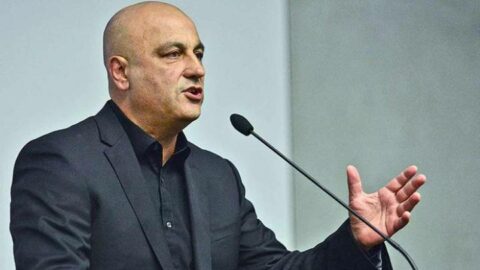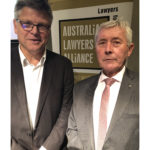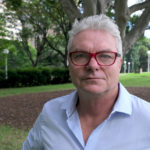“Be Prepared for Ruin When Blowing the Whistle”: Independent Calls for Real Protections

Despite decades of calls for greater whistleblower protections and faux moves by Canberra to provide them, the fire at the base of the stake that those who expose institutional corruption are tied to is only growing stronger.
The political prosecution of ACT barrister Bernard Collaery for allegedly conspiring to reveal the fact that the Howard government illegally bugged the East Timorese cabinet offices for industry gain has become even more Kafkaesque.
This week, the ACT Supreme Court came to the determination that the Commonwealth can now present “court only” evidence during a trial already steeped in secrecy, which means Collaery and his lawyers can’t cite it, but a government-appointed special counsel can do so on his behalf.
Collaery’s co-accused, Witness K, gave up fighting his charge and pled guilty. Former ADF lawyer David McBride continues to fight his charges for exposing war crimes that the government officially did later in the Brereton report. And ATO whistleblower Richard Boyle is facing a litany of charges.
But while the persecution of those who blow the whistle has reached fever pitch under a decade of Coalition rule, it’s long been a part of the Australian political climate – think Allan Kessing at the turn of the century – and progressive independents see the next election as a chance to change all this.
Punishing the messenger
“Australia has a firmament of adversarial secrecy governances, and inculcating cultures of unaccountability,” said Social Justice Independent Gerry Georgatos. “The ability to discover the truth is outstripped by the capacity to manifest deceit.”
“There are layers of preposterous extra-legal protections to ensure the veils of secrecy,” he continued. “Wherever there has been an information leak of some injustice or wrongdoing, there is an avalanche of energy to find out who leaked, concomitant with the intent to punish.”
A clear example was the June 2019 AFP raid on the home of then Murdoch journalist Annika Smethurst, in relation to a 2018 article that revealed top public officials discussing turning the ASD on domestic targets. This aimed to track down the leaker and intimidate Smethurst.
As of last July, $3.7 million had been spent on prosecuting K and Collaery, over actions no one considers were just.
While ex-ATO officer Richard Boyle was initially slapped with 66 charges, and despite having later been dropped to 24, he still continues to face life in prison for speaking out on corruption.
“Australia has not just eroded civil liberties in terms of the right to know, but it has obliterated whistleblowing protections,” Georgatos told Sydney Criminal Lawyers. “During the last three decades, governments have been increasing secrecy laws and clandestine-like executive powers.

The reluctant whistleblower
Georgatos raised the treatment of customs official Allan Kessing, who was asked by Air Border Security to write two reports on security at airports in 2003, which were so damning in their findings of corruption that they were buried and the ABS was abolished the following year.
“When the reports were leaked in 2005 to the Australian by someone – still arguably unknown – Kessing was suspected,” Georgatos continued. “He was prosecuted for “passing information”. He was charged for whistleblowing. Kessing’s reports were supported by other independent reports.”
When Kessing’s assessments did meet the public eye, John Howard sought a UK security expert to act upon them and fix the airport issues. But, the then PM still conducted a witch hunt for the leaker. And despite always having denied it, Kessing was found guilty and given a suspended sentence.
“Kessing reported that corruption at airports throughout Australia was not being reduced but was continuing to increase,” Georgatos added. “Should the leaking of this type of content be a punishable offence?”
Silencing the public interest
The Public Interest Disclosure Act 2013 (Cth) is the main piece of legislation providing the process that Commonwealth public service whistleblowers need to follow in coming forward with evidence of corruption. Indeed, the legislation is supposed to promote their speaking out.
The Act sets up a regime that requires an individual aware of any wrongdoing to make a disclosure internally within the organisation intially. However, if these avenues provide inadequate action or the problem is ignored, a whistleblower can legally go public.
This is exactly what both David McBride and Richard Boyle did. They’re now facing the rest of their lives in prison.
The Rudd government delivered the PID Act in 2013. The statutorily required 2016 Moss review found the procedures within it “undermine the pro-disclosure culture it seeks to create”.
The Coalition took four years to respond to the review, but thus far has failed to deliver its promised overhaul of the PID regime.
Indeed, then attorney general Christian Porter flagged PID reforms in 2019, which was the year after had he unleashed the pogrom against Witness K and Collaery.
According to Georgatos, since the PID laws took effect in early 2014, there’s been an increase in reprisals against whistleblowers, which makes it obvious that, “despite a four-year development process”, the Act hasn’t provided protections at all.
Real change on the horizon
The last three years under Morrison have been bleak, and it’s not just the crises that were out of government control that have led to this. There’s been a growing crisis in government accountability and transparency and increasingly charges of corruption are being laid against it.
Running on the Social Justice Independents ticket for the Senate in WA, Georgatos is one of the rising tides of progressive independents that people are turning to on their way to the ballot box, as Gerry and his ilk are offering real and much-needed change.
Georgatos is not only calling for the legislating of stronger whistleblower protections, but he’s also pushing for the establishment of “a robust federal human rights act or a bill of rights that would further safeguard whistleblowing, as well as protect us all from government interference”.
“Civil liberties are cumulatively won, in small steps of intense struggle, through great sacrifice,” Georgatos said in conclusion. “Government must always be a procedural process that does not risk civil liberties and guarantees the right to know.”
“If we want a better world, then let us protect the honourable and the right to know.”







